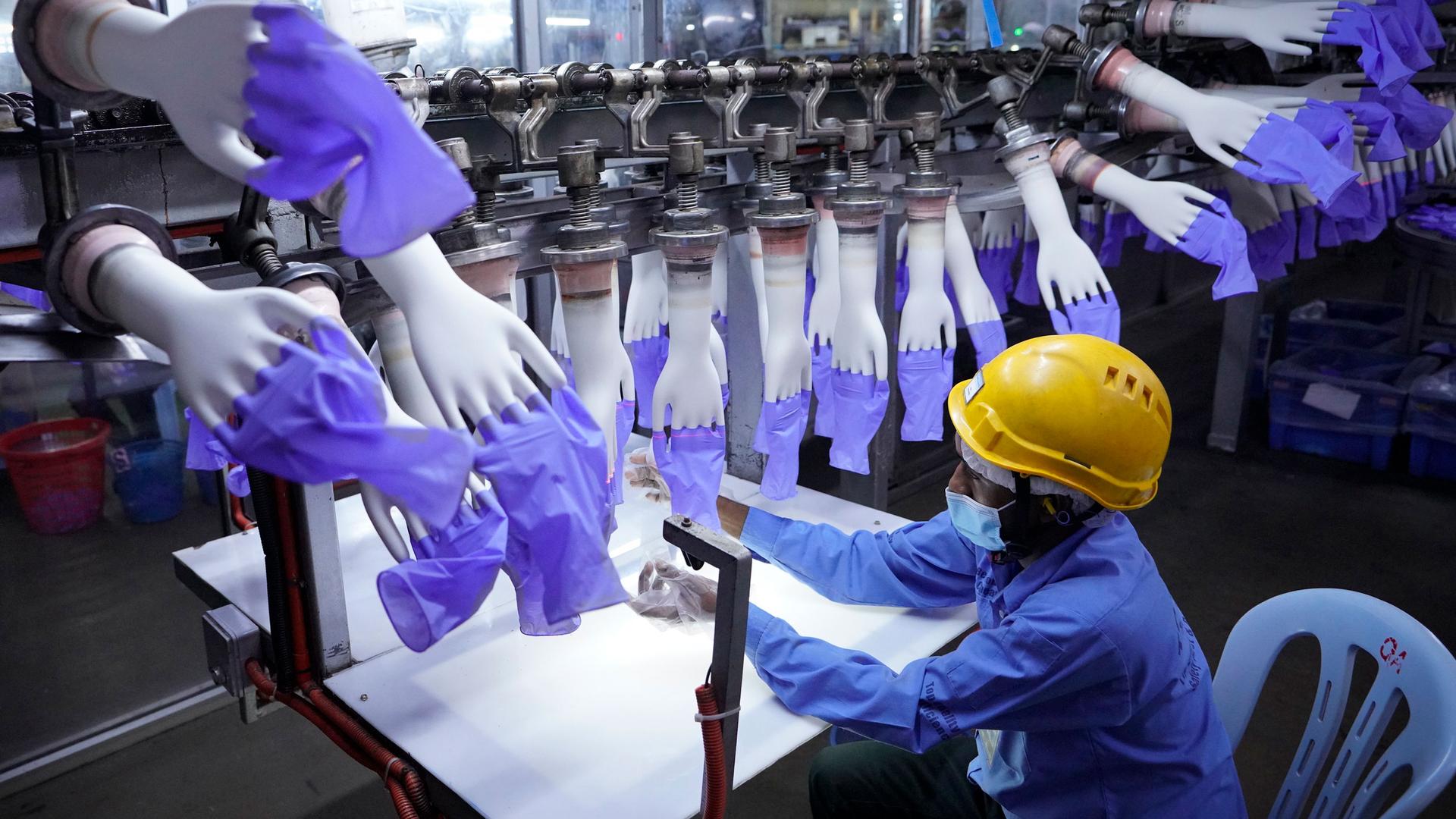For decades, Cuba has sent thousands of health workers to other countries on medical missions, responding to disasters and other situations.
The humanitarian efforts mask a program that relies on forced labor and that has earned Cuba billions of dollars, according to Maria Werlau, executive director of the US nonprofit Cuba Archive.
“Many people allege that these doctors go voluntarily, without recognizing that these doctors are a captive labor force.”
“Many people allege that these doctors go voluntarily, without recognizing that these doctors are a captive labor force,” she said. “A lot of them don’t even make enough to feed their families.”
Related: ‘Global ring’ involved in smuggling 39 found dead in truck, court told
The US has deemed these medical missions “human trafficking” before. But a report released by the State Department on Thursday may use the strongest language yet. US Secretary of State Antony Blinken spoke directly to the issue:
“They send doctors and other medical personnel abroad, fail to inform them of the terms of their contracts, confiscate their documents and salaries, threaten them and their family members when they try to leave,” he said.
Cuban officials reacted vehemently, accusing the US of lying, defaming and slandering their country. And they’re not the only ones expressing outrage since the Trafficking in Persons Report — or TIP report — was released. But the report is also being hailed for speaking more stridently and directly to some issues than ever before.
“This report is important because it acknowledges problems that have long existed, but that the TIP report has rarely embraced,” said Martina E. Vandenberg, founder and president of the Human Trafficking Legal Center in DC.
The report says many countries failed to adapt to the COVID-19 crisis, allowing a dramatic increase in the number of people trafficked or at risk of falling into modern slavery. And while anti-trafficking organizations faltered, traffickers thrived, in part by drastically increasing online sex trafficking.
“Traffickers … adapt their tactics, they take advantage of new risks and new vulnerabilities that emerge …”
“Traffickers adapt,” said Kari Johnstone, acting director of the Office to Monitor and Combat Trafficking in Persons, at a press conference. “They adapt their tactics, they take advantage of new risks and new vulnerabilities that emerge. It is incumbent upon governments, and all of us who care about human trafficking, to similarly adapt and respond to prevent trafficking, prosecute the traffickers and protect the victims.”
Related: South Korea reels from latest high-tech, online sex trafficking case
This year’s TIP report includes a new section that focuses specifically on LGBTQ people. Another part added this year draws a connection from modern-day trafficking to systemic racism and the legacies of colonization, Indigenous dispossession, and the trans-Atlantic slave trade.
“I think that is a step forward. Denying these intersections and these root causes of trafficking allows us to continue — as a government, as a country — to continue perpetuating these harms.”
“I think that is a step forward. Denying these intersections and these root causes of trafficking allows us to continue — as a government, as a country — to continue perpetuating these harms. So, I think first we have to acknowledge it,” said Jean Bruggeman, executive director of Freedom Network USA in DC.
“But, of course, then, the real test is, are we going to do anything about it?”
For the first time, the TIP report placed a NATO member — Turkey — on the congressionally mandated list of countries that use child soldiers. The Turkish foreign ministry blasted the US, calling the accusations unfounded — and unacceptable. It added that the report is, quote, “the most striking example of hypocrisy” and “double standards.”
Related: US human trafficking report is misleading, advocates say
The Thai foreign ministry also angrily dismissed the report as unfair, after it downgraded and placed Thailand on a watchlist for catching and charging fewer suspects. Thailand’s inaction contributed to a stunning overall drop in the apprehension of traffickers worldwide last year. Prosecutions fell below 10,000 for the first time since at least 2013. Convictions were down from the previous year by almost half, to barely more than 5,000.
“It’s clear that COVID opened the door to the largest wage theft in history, and so walking COVID back — walking the abuse of workers back — is going to be incredibly difficult … We need much more than rhetoric. We need real structural changes.”
“It’s clear that COVID opened the door to the largest wage theft in history, and so walking COVID back — walking the abuse of workers back — is going to be incredibly difficult,” Vandenberg said. “We need much more than rhetoric. We need real structural changes.”
At least one country reacted positively to the report’s findings: Malaysia. It was downgraded to the worst ranking, because of the alleged exploitation of migrant workers there. The Malaysian Human Resources Ministry says it takes those concerns seriously, and has vowed to conduct a review.
